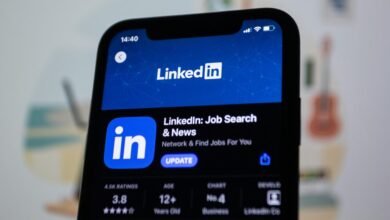9032240457 , 6028346873 , 9892641510 , 5632584382 , 7029347730 , 5034614677 , 5124982275 , 6313153145 , 2814084487 , 6164252258 , 5677063640 , The Caller You Can’t Block: 9138032257

The phenomenon surrounding the caller from 9138032257 raises intriguing questions about privacy and communication norms. Persistent attempts to identify this caller reveal significant gaps in current regulations. As individuals grapple with unwanted communications, the implications for personal privacy become increasingly relevant. What strategies can be employed to manage such intrusions? The answers may reveal broader societal challenges in protecting individual rights in an ever-evolving digital landscape.
The Mystery of 9138032257
What secrets lie behind the number 9138032257? This enigmatic caller has piqued curiosity, prompting analysis of its behavior against evolving phone regulations.
Observers note patterns in caller behavior, suggesting a strategy that may evade conventional blocking methods. As regulations tighten, the persistence of such calls raises questions about enforcement and individual freedom, inviting deeper inquiry into the balance between communication rights and intrusive practices.
The Impact on Privacy and Communication
The persistence of calls from numbers like 9138032257 raises significant concerns regarding privacy and communication in an increasingly digital age.
This phenomenon challenges established data protection principles and communication ethics, as individuals grapple with unsolicited intrusions into their personal lives.
The implications extend beyond annoyance, prompting a reevaluation of how society balances the right to communicate freely with the necessity of safeguarding individual privacy.
Attempts to Unravel the Caller's Identity
How can one effectively identify the elusive sources of persistent calls, such as those from 9138032257?
Investigators often sift through caller background information and analyze identity clues, such as call patterns and associated numbers.
Strategies to Manage Unwanted Calls
Identifying the source of persistent calls can be just the beginning of a larger challenge: managing the impact of these interruptions in daily life.
Effective strategies include utilizing call blocking features and adjusting phone settings to filter unwanted communications.
Users might also consider registering on national do-not-call lists or employing third-party applications, fostering a greater sense of autonomy and control over their communication environment.
Conclusion
As the saga of 9138032257 unfolds, it underscores the growing complexity of privacy in an increasingly interconnected world. Intriguingly, a recent survey revealed that nearly 70% of Americans have received unwanted calls, reflecting a widespread issue that transcends individual experience. This statistic not only highlights the prevalence of intrusive communications but also emphasizes the urgent need for more robust regulatory frameworks to protect citizens' privacy rights in a digital landscape fraught with challenges.




